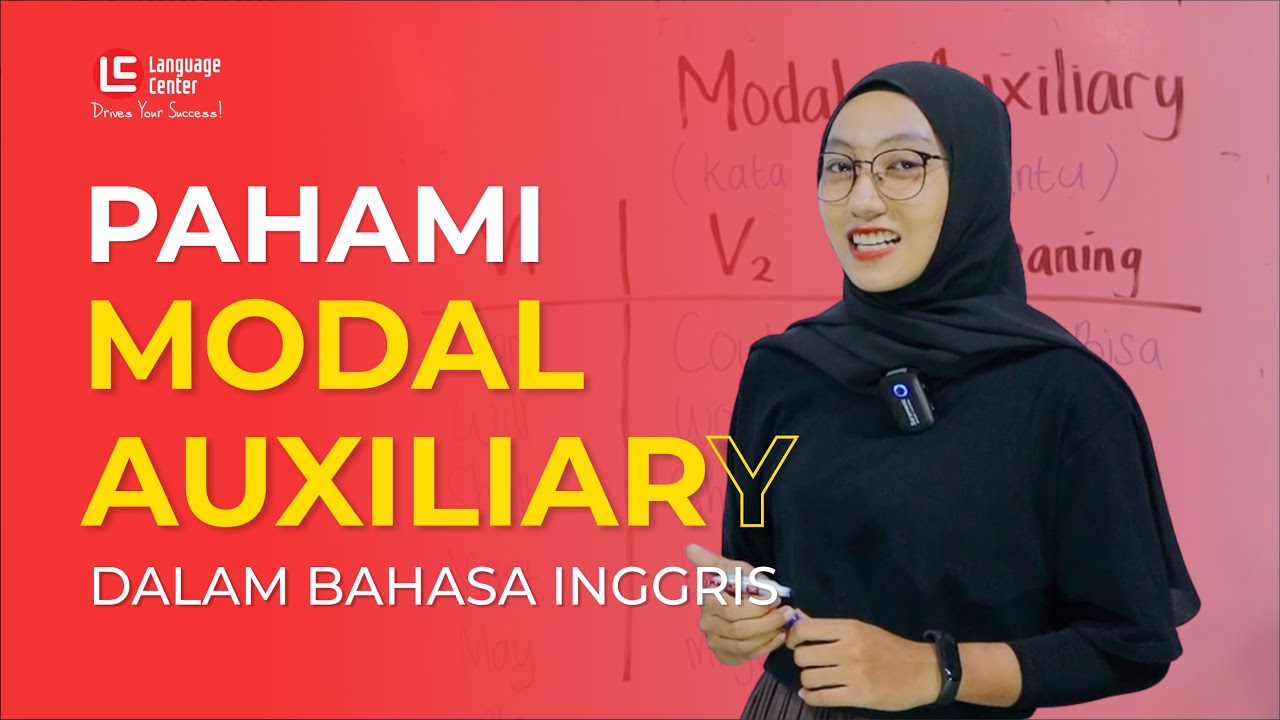Modal Verbs | MUST CAN WOULD SHOULD MIGHT WILL COULD SHALL MAY
Summary
TLDRIn this English grammar lesson, Lucy introduces modal verbs, a subset of auxiliary verbs, and their specific usage rules. She presents an easy mnemonic to remember the nine modal verbs: must, might, may, will, would, can, could, shall, and should. Lucy outlines the basic rules, such as the use of infinitives without 'to', the absence of third person singular 's', and the invariant form of modal verbs across tenses. She also covers negative and interrogative sentence structures, providing examples for each modal verb to illustrate their varied meanings in different contexts. The video concludes with an interactive homework assignment encouraging viewers to practice using modal verbs in affirmative, negative, and interrogative forms.
Takeaways
- 📚 Modal verbs are a subset of auxiliary verbs that add specific meaning to other verbs and follow strict rules.
- 🔢 There are nine primary modal verbs: must, might, may, will, would, can, could, shall, and should.
- 🧠 Remembering the modal verbs can be simplified with the pattern: 3 M's (must, might, may), 2 W's (will, would), 2 C's (can, could), and 2 S's (shall, should).
- 📝 Modal verbs are followed by the base form of the verb (infinitive without 'to') in a sentence, e.g., 'I might eat pizza'.
- 🚫 Modal verbs do not change form for different tenses or third person singular, maintaining consistency in usage.
- ❌ In negative sentences, modal verbs are followed by 'not', forming a structure like 'subject + modal verb + not + verb', e.g., 'You must not eat my food'.
- ❓ For forming questions, modal verbs are used in the same way as other auxiliary verbs, with the modal verb preceding the subject, e.g., 'Can you help me?'
- 🔄 Contractions are common in negative and interrogative sentences using modal verbs, e.g., 'mightn't', 'mustn't', 'can't'.
- 🤔 Modal verbs express various meanings depending on the context, including possibility, permission, probability, necessity, and ability.
- 📅 'Will' and 'would' are particularly used for future intentions, promises, and polite questions or requests.
- 📝 The script provides practical examples and rules to help learners understand and use modal verbs correctly in different situations.
Q & A
What is the main topic of Lucy's video?
-The main topic of Lucy's video is modal verbs in English grammar.
Why did Lucy decide to make a video on modal verbs?
-Lucy decided to make a video on modal verbs because a lot of her viewers asked for it.
What are auxiliary verbs and how do they relate to modal verbs?
-Auxiliary verbs are verbs that add meaning to another verb. Modal verbs are a subset of auxiliary verbs and they follow a strict set of rules and are used in a very specific way.
How many modal verbs are there, and what is a simple way to remember them?
-There are nine modal verbs. A simple way to remember them is through the mnemonic '3 m's, 2 w's, 2 c's, and 2 s's' which stands for must, might, may, will, would, can, could, shall, and should.
What are the special contractions for 'will' and 'would' in spoken and informal language?
-In spoken and informal language, 'will' can be contracted to 'I'll', and 'would' can be contracted to 'she'd' or 'he'd', etc.
What are the four main rules for using modal verbs according to Lucy's video?
-The four main rules are: 1) Infinitives come after modal verbs without 'to'. 2) Modal verbs take no 's' in the third person singular. 3) Modal verbs do not change their form according to tense. 4) In negative sentences, modal verbs are used with 'not' after the subject.
How are modal verbs used in negative sentences?
-In negative sentences, modal verbs are used with the word 'not' following the subject, for example, 'You must not eat my food' or 'I cannot speak French'.
What are the contractions for the negative forms of modal verbs?
-The contractions for the negative forms are mightn't, mustn't, may not, can't, couldn't, won't, wouldn't, shan't, and shouldn't.
How are modal verbs used in interrogative sentences?
-In interrogative sentences, the modal verb is placed before the subject, for example, 'Can you help me?' or 'Will you let him go?'.
What are some of the individual uses of the modal verb 'might'?
-Might can be used to show possibility, such as 'They might be eating lunch' or 'She might give us a discount'.
What is the homework assignment Lucy gives to her viewers at the end of the video?
-Lucy's homework assignment is for viewers to comment below with three sentences using modal verbs, one in affirmative, one in negative, and one in interrogative form, and she will correct as many as possible.
Outlines

Dieser Bereich ist nur für Premium-Benutzer verfügbar. Bitte führen Sie ein Upgrade durch, um auf diesen Abschnitt zuzugreifen.
Upgrade durchführenMindmap

Dieser Bereich ist nur für Premium-Benutzer verfügbar. Bitte führen Sie ein Upgrade durch, um auf diesen Abschnitt zuzugreifen.
Upgrade durchführenKeywords

Dieser Bereich ist nur für Premium-Benutzer verfügbar. Bitte führen Sie ein Upgrade durch, um auf diesen Abschnitt zuzugreifen.
Upgrade durchführenHighlights

Dieser Bereich ist nur für Premium-Benutzer verfügbar. Bitte führen Sie ein Upgrade durch, um auf diesen Abschnitt zuzugreifen.
Upgrade durchführenTranscripts

Dieser Bereich ist nur für Premium-Benutzer verfügbar. Bitte führen Sie ein Upgrade durch, um auf diesen Abschnitt zuzugreifen.
Upgrade durchführenWeitere ähnliche Videos ansehen

MODAL AUXILIARY - CAN, COULD, WILL, SHOULD, MAY, MUST (ABILITY, ADVICE) - MATERI KELAS 8

Complete Guide to English Modal Verbs - English Grammar Lesson

Modals Auxiliary : will, can, may, must, should #2

CARA MUDAH BELAJAR MODAL AUXILIARY BAGI PEMULA - Kampung Inggris LC

The 8 Parts of Speech in English Grammar (+ Free PDF & Quiz)

Tips To Improve Your Grammar! 👉 English Auxiliary Verbs | BE, DO & HAVE
5.0 / 5 (0 votes)
